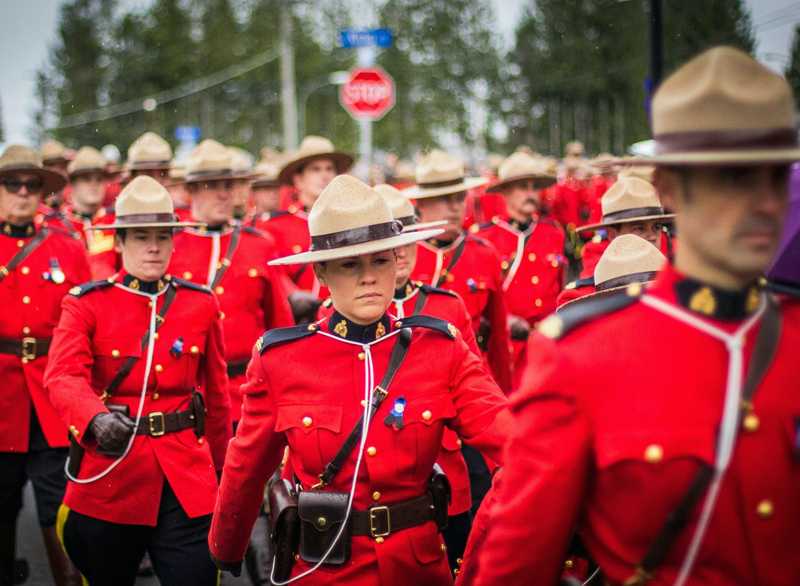Canadian police services say there’s zero chance they’ll be ready to enforce new laws around marijuana legalization by this summer.
Police forces point to major questions still unanswered, such as how they’ll go about spotting and prosecuting cannabis-impaired drivers. To date, there’s still no easy, quick and reliable way to test drivers for tetrahydrocannabinol (THC), the psychoactive compound in marijuana, like there is to test blood alcohol levels.
Edmonton Police Brace for Canada Marijuana Legalization
Chief Rod Knecht gave CBC News a straightforward "no" when asked if he thinks Edmonton's police force would be ready for cannabis to be legalized by the summer of 2018.
He stated that there were too many questions and not enough time to answer them all as their most significant handicap. In the interview from mid-December, Knecht told journalists, “You'd be hard-pressed to find any police service that's ready right now.”
But one person who disagrees with Chief Knecht is Andrew Knack, Edmonton's councillor for Ward 1. He thinks that although the city has a lot of preparation work in front of them, he expects to be ready by as early as July.
A survey from November and December of last year found that cannabis-impaired driving and public smoking laws are of most concern to Edmontonians—and those issues require extra police training. The rest of the framework for Alberta's provincial cannabis rules fall under existing tobacco laws.
Ontario Police Concerned About Cannabis-Impaired Driver Training
Ontario police told Ottawa in September that they need more time and money to train officers through The International Drug Evaluation and Classification Program to be able to recognize and handle drug-impaired drivers.
The Los Angeles Police Department started the program to identify drug-impaired drivers in the 1970s, and British Columbia police adopted the training in 1995. The program has been used across Canada since 2008 to train Drug Recognition Experts.
In Ontario, only 83 Ontario Provincial Police officers have passed the drug-impaired driving recognition training; the force expects it will need at least 400 to 500 trained officers altogether. Aside from this being a costly undertaking, the program includes more than a week of coursework and a field evaluation supervised by a qualified officer.
More Training Needed to Prosecute Marijuana-Impaired Driving
Bill C-46, the proposed changes to impaired-driving laws, sets out specific limits for the amount of THC that you can legally have in your blood while driving. Any impaired driving charges would depend on how many nanograms of THC you have per millilitre of blood within two hours of driving. Under the government’s proposal, a test of 2 nanograms but less than 5 nanograms would result in a drugged driving offense. A test showing 5 or more nanograms would mean an impaired driving charge, which would result in a fine and then jail time for any subsequent positive test.
The problem is that police have no sure way to prove when a driver's awareness is diminished due to marijuana consumption. And the government couldn’t provide any guidance in their proposed laws around how much marijuana it takes to reach these THC blood levels.
For now, police can have a driver take an oral fluid test—where they take a scrape of saliva off your tongue and put it into a machine—or the Standardized Field Sobriety Test. The oral fluid test doesn't show an exact THC level—it's just a pass or a fail. But the test only reads fail if you’re above 5 nanograms of THC.
Upon failing either test, the officer can demand a blood test, which would show the driver's actual blood concentration of THC. The blood test must be taken within two hours of the driver being pulled over, or their blood-THC level may drop below 5 nanograms. This test is what determines the final charges.
The provinces still have to pass their own rules for driving while high. Ontario, like Alberta, has proposed zero tolerance for new drivers only. Quebec, on the other hand, will introduce a zero-tolerance policy where any driver with a trace of cannabis could face a 90 day suspension.
But until the laws pass, if police believe a driver is affected by any drug, that driver could face criminal charges. The threshold is low for a police officer to suspect impaired driving—erratic driving or the smell of cannabis is all it takes.
How’s the Federal Government Helping With Marijuana Laws Enforcement?
Canada's police services may not think they're ready, but it won't be because the federal government did nothing to help.
Ottawa came to a two-year deal near the end of 2017 whereby tax revenue would be shared 75% for provinces and 25% by the federal government—to help provincial governments offset costs like bulking up police forces and training them for cannabis-impairment crimes. Health Canada, along with several other agencies, is putting a lot of its budget behind public education.
The federal government also made a 10-year chief of the Toronto Police Service, Bill Blair, its point man on the cannabis task force. Blair acknowledges that the timelines are tight and he has to respect what law enforcement is saying on the issue.
Canada is among the countries at the top of the list with the highest rates of cannabis use in the world. Currently, this demand is being met almost entirely by the black market—a $7 billion illegal industry in the country. There are over 300 criminal organizations presently involved in the production, distribution, importation or exportation of cannabis. Blair, along with many of his Liberal party colleagues, feels that legalization and regulation is the best way to move forward—and with haste.
Bill C-46, including the rules governing drugged driving, is set for debate when the Senate resumes this month.
